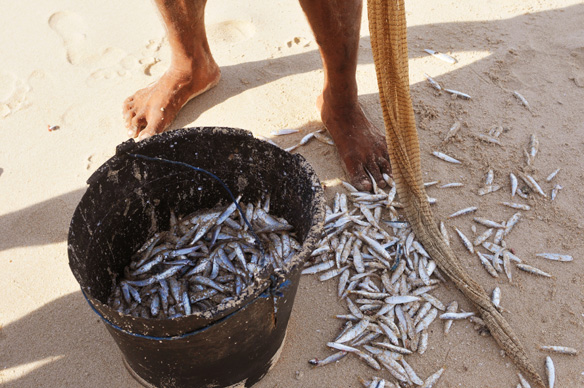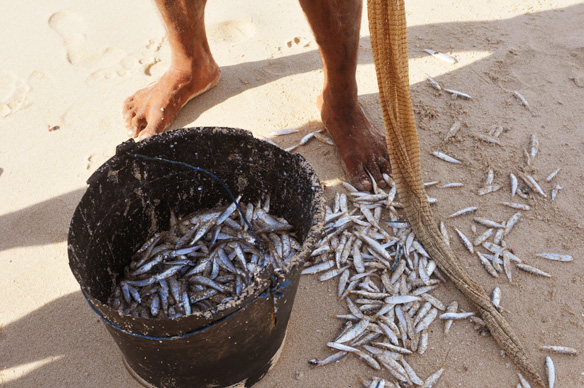
Photo source: © SAF — Coastal Care
Excerpts;
Encompassing 1.4 million square miles, the South China Sea is one of the world’s most important fisheries, employing more than 3.7 million people and bringing in billions of dollars every year.
In terms of biodiversity, it is thought of as the marine equivalent of the Amazon rain forest, but after decades of free-for-all fishing, dwindling stocks now threaten both the food security and economic growth of the rapidly developing nations that draw on them…
Read Full Article, National Geographic (08-29-2016)
As global per-capita fish consumption hits all-time high, UN warns on overharvesting, UN (07-07-2016)
A new report from the United Nations Food and Agriculture Organization (FAO) shows that while growth in aquaculture has helped drive global per capita fish consumption above 20 kilograms a year for the first time, almost a third of commercial fish stocks are now overharvested at biologically unsustainable levels…
Overfishing is as big a threat to humanity as it is to our oceans, Guardian UK (02-16-2016)
There has never been a more urgent time for seafood businesses and fishing nations to make a commitment to sustainability. The world’s oceans are in trouble, with marine life plummeting and the people who are dependent on the sea for income and food left increasingly vulnerable…
30 percent of global fish catch is unreported, study finds, Science Daily (01-20-2016)
The World’s Tuna and Mackerel Populations Are in a “Catastrophic” Decline, Quartz (09-17-2015)
Chinese Foreign Fisheries Catch 12 Times More Than Reported, Study Shows; Science Daily (04-03-2013)
African Fisheries Plundered by Foreign Fleets, IPS News (o7-02-2016)
A study to determine how much fish had been taken out of the world’s oceans since 1950 in order to better avoid depleting the remaining populations of fish, found that the global catch was 40 percent higher than officially reported. Examinations of illegal fishing determined that Spain, whose seafood consumption is double the European average, steals more fish than any other nation, followed by China and Japan…









